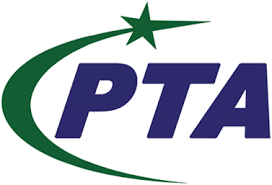How can I verify someone online?
|
Getting your Trinity Audio player ready...
|
Introduction
In today’s digital world, verifying someone’s identity online has become a crucial task. Whether you’re hiring a freelancer, entering a business deal, or simply ensuring the authenticity of a person you’re communicating with, online verification is a necessary step.
With the rise of online fraud, scams, and fake identities, knowing how to verify someone online can protect you from potential risks. This guide will walk you through various methods, tools, and legal considerations to help you verify identities safely and effectively.
Why is Online Verification Important?
Verifying a person’s identity online is essential for several reasons:
✅ Prevents Fraud & Scams – Ensures you are dealing with a genuine person.
✅ Enhances Security – Reduces risks of identity theft or cybercrime.
✅ Protects Business Interests – Helps verify clients, employees, and partners.
✅ Ensures Authenticity in Transactions – Confirms the legitimacy of digital transactions.
✅ Builds Trust – Strengthens confidence in personal and business interactions.
How to Verify Someone Online?
There are multiple methods to verify someone online. The choice depends on the situation, the level of verification needed, and the available information. Below are the most effective methods:
1. Verify Through Social Media Profiles
One of the simplest ways to verify someone is by checking their social media presence. Most people have at least one active profile, and analyzing their digital footprint can provide valuable insights.
Steps to Verify Someone Using Social Media
- Check Profile Consistency – Compare names, photos, and posts across platforms.
- Look for Mutual Connections – If you have common friends, ask them about the person.
- Analyze Activity – A genuine profile has regular posts, interactions, and updates.
- Verify Profile Age – Fake accounts are usually new with minimal activity.
- Check for Verified Badges – Platforms like Facebook, Instagram, and LinkedIn offer verification for authentic users.
Popular Platforms to Check:
📌 Facebook, Instagram, LinkedIn, Twitter, TikTok
2. Use Google Search and Reverse Image Lookup
Google provides powerful tools to check someone’s online presence and detect fake identities.
Steps to Verify Using Google
- Google Their Name – Search their full name with relevant keywords like location or job title.
- Check Their Online Presence – Look for news articles, work profiles, or personal websites.
- Use Reverse Image Search – Upload their profile picture to Google Reverse Image Search to check for duplicates or stolen images.
📌 Tip: If the image appears on multiple unrelated websites, it’s likely a fake profile.
3. Verify Someone’s Identity via Official Databases
For legal and official verification, checking government databases and professional directories is the best method.
Ways to Check Official Records
- National ID Verification – Many countries offer online portals to verify ID cards, passports, and driving licenses.
- Company and Business Registrations – Websites like SEC (Securities and Exchange Commission), FBR (Federal Board of Revenue), and Chamber of Commerce can verify business entities.
- Court & Criminal Records – Some legal databases provide access to public court records and criminal background checks.
📌 Example Websites:
- USA: SSA.gov (Social Security Verification)
- UK: Companies House
- Pakistan: NADRA (CNIC Verification)
4. Check Their Email and Phone Number
Verifying an individual’s email address and phone number can help confirm authenticity.
Steps to Verify Email & Phone Number
🔹 Email Verification:
- Use online tools like EmailChecker.net or Hunter.io to check email validity.
- Send a test email and check if it gets delivered.
🔹 Phone Number Verification:
- Use platforms like Truecaller to check registered names.
- Send an OTP (One-Time Password) request to confirm authenticity.
📌 Warning: Avoid sharing personal details until you verify the person.
5. Verify Someone Using Public Records & Background Checks
In cases where deeper verification is needed, conducting a background check through public records can provide valuable information.
Where to Find Public Records?
- Court Cases & Legal History – Online court databases in various countries provide case history.
- Property Records – Verify ownership of real estate assets.
- Educational Records – Some institutions provide online verification of degrees and diplomas.
📌 Recommended Background Check Websites:
- BeenVerified (https://www.beenverified.com)
- Spokeo (https://www.spokeo.com)
- PeopleFinder (https://www.peoplefinder.com)
Legal Considerations When Verifying Someone Online
Before verifying someone online, it’s important to follow legal and ethical guidelines.
Things to Keep in Mind
✔ Do Not Violate Privacy Laws – Always respect data protection regulations like GDPR, CCPA, and local cyber laws.
✔ Obtain Consent for Background Checks – If using third-party services, inform the person in advance.
✔ Avoid Unauthorized Access to Private Data – Never hack or illegally obtain someone’s information.
✔ Report Fake Profiles & Scammers – If you find fraudulent activities, report them to authorities.
📌 Tip: When in doubt, consult legal professionals before conducting extensive background checks.
FAQs (Frequently Asked Questions)
1. How do I verify someone’s identity for a job interview?
You can verify their identity by:
- Checking their LinkedIn profile.
- Verifying their educational and work credentials via official records.
- Asking for ID proof and matching it with their social profiles.
2. Can I verify someone’s phone number for free?
Yes, you can use Truecaller or Google search to check basic details linked to a phone number.
3. Is it legal to verify someone’s identity online?
Yes, but you must follow privacy laws and ensure that your verification methods are ethical and legal.
4. How can I check if someone is using a fake profile?
Look for inconsistencies in their social media presence, use Google Reverse Image Search, and check for duplicate profiles across different platforms.
5. What should I do if I suspect a scammer?
If you suspect fraud, report the profile to the respective platform, block communication, and, if necessary, contact local authorities.
Conclusion
Verifying someone online is an essential step in ensuring trust, security, and authenticity in digital interactions. By using social media checks, reverse image searches, email verification, public records, and official databases, you can minimize the risk of fraud and establish confidence in your connections.
Always follow ethical and legal practices while verifying individuals, and stay cautious when dealing with unknown contacts. Online security begins with awareness—verify before you trust!


